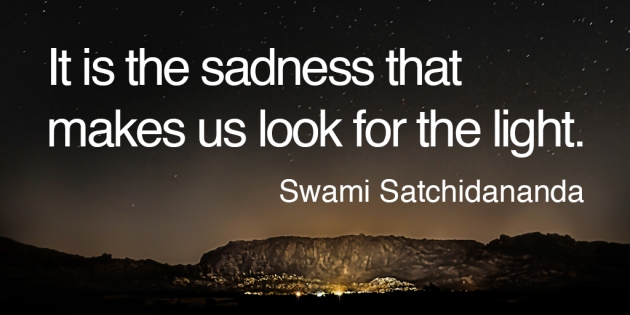There is an ache inside me that tells me I am a failure. The ache spotlights all the people I know who are more successful, who have secured higher profile jobs, who have found a spouse.
The ache is relentless. On this Sunday morning, before I’ve had a chance to brush my teeth or shower or meditate, the ache tells me: why bother.
The ache is familiar. The ache is a manifestation of my illness but also a manifestation of being alive. The ache swallows me up, tries to drown me. The ache persists, I challenge it and begin to look for the light.
What does this mean? Today, the light is getting out of bed; the light is taking my medication; the light is walking to the drugstore to buy more paper towels; the light is eating breakfast; the light is restructuring this Sunday so I don’t have time to ruminate in my own darkness.
This day, every day, is ours to create. We can choose to honor the ache or we can choose to let go of it. Actions—no matter how small—suffocate our pain.
If you are suffering, accept that the ache is not permanent. Accept the ache for what it is—your sorrow, your depression, your loneliness—and then choose to help yourself move on from it. This may mean challenging your negative thoughts. This may mean devising a plan for what you will do today, no matter how small: take out the trash, do the dishes, tackle the laundry, take a walk.
It may also mean finding a therapist, a psychiatrist, a new medication, a support group, or a loved one who can help you. There’s no shame in getting help.
Millions of people have shared in this suffering. If you truly accept what you are feeling, then you free yourself to move on from it. As Thich Nacht Han writes in No Mud No Lotus, this acceptance may be what helps us find joy:
It is possible of course to get stuck in the “mud” of life. It’s easy enough to notice mud all over you at times. The hardest thing to practice is not allowing yourself to be overwhelmed by despair. When you’re overwhelmed by despair, all you can see is suffering everywhere you look. You feel as if the worst thing is happening to you. But we must remember that suffering is a kind of mud that we need in order to generate joy and happiness. Without suffering, there’s not happiness. So we shouldn’t discriminate against the mud. We have to learn how to embrace and cradle our own suffering and the suffering of the world, with a lot of tenderness.
[Image courtesy of Larry Smith via Flickr.]
